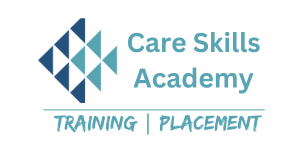Air conditioning systems have become an essential part of modern life, whether at home, in offices, or in vehicles. As the demand for air conditioning continues to rise, so does the need for skilled professionals who can repair and maintain these systems. An AC repairing course provides individuals with the technical knowledge and hands-on skills necessary to excel in the Heating, Ventilation, and Air Conditioning (HVAC) industry.
Why Pursue an AC Repairing Course?
- Growing Demand for HVAC Technicians: The increasing reliance on air conditioning in homes, offices, and industrial environments has led to a surge in demand for qualified AC repair technicians. Completing a specialized course in AC repair allows individuals to tap into this growing industry and secure stable employment.
- Essential Skill Set: Repairing an AC unit involves more than just fixing the cooling system. It requires a comprehensive understanding of electrical circuits, refrigerant flow, mechanical components, and safety measures. A professional AC repairing course ensures that students are well-equipped to handle all aspects of an AC system, from diagnostics to repairs and maintenance.
- Diverse Career Opportunities: HVAC technicians are needed across a wide range of industries, from residential and commercial maintenance services to large-scale industrial HVAC systems. With the skills acquired in an AC repairing course, graduates can pursue careers in various fields, including HVAC repair, installation, system maintenance, and even become self-employed service providers.
Course Overview
The AC repairing course is designed to cover both theoretical knowledge and practical application. It’s suitable for beginners as well as those looking to upgrade their existing skills in HVAC repair.
- Introduction to Air Conditioning Systems:
- The course begins with an overview of air conditioning systems, covering their types and applications. Students learn about window AC units, split systems, and central air conditioning. Understanding the basic components of each system, such as compressors, condensers, evaporators, and thermostats, is crucial for repair work.
- Understanding Refrigeration Cycle:
- The refrigeration cycle is the heart of any air conditioning system. The course explains the entire cycle, from the compression of refrigerant to the expansion and cooling process. Mastering this cycle helps technicians troubleshoot cooling issues and improve system efficiency.
- Electrical Components and Wiring:
- HVAC systems involve complex electrical circuits that control various parts of the unit. This section of the course covers wiring diagrams, electrical components, and safety procedures. Students learn to identify common electrical issues, such as faulty capacitors, contactors, and relays, and gain experience in safely handling electrical repairs.
- AC PCB Repairing:
- The Printed Circuit Board (PCB) in an AC unit controls its functioning. This part of the course focuses on diagnosing and repairing faulty PCBs, including checking voltage, inspecting components, and troubleshooting sensor problems. Students learn to use tools like multimeters to perform accurate diagnostics.
- Refrigerant Handling and Safety:
- Handling refrigerants is a critical part of AC repair. The course teaches students about different types of refrigerants, how to recharge systems, and the legal and safety regulations involved. Proper refrigerant management is essential to avoid leaks, ensure system efficiency, and comply with environmental standards.
- Installation and Maintenance:
- Beyond repairs, HVAC technicians are often responsible for installing new systems and performing routine maintenance. The course covers best practices for installing air conditioners, maintaining filters, and conducting preventive checks to ensure long-term system reliability.
- Troubleshooting and Diagnostics:
- One of the most important skills for any AC technician is the ability to troubleshoot and diagnose problems accurately. The course emphasizes identifying common issues such as refrigerant leaks, electrical failures, and airflow problems. Students are trained to use diagnostic tools and follow a systematic approach to problem-solving.
Hands-On Training
A significant portion of the AC repairing course involves hands-on training, where students work on real AC units under the guidance of experienced instructors. This practical experience is invaluable in helping students apply theoretical knowledge to real-world scenarios. By the end of the course, students are confident in performing repairs, replacements, and routine maintenance tasks.
Career Prospects
Upon completing the AC repairing course, graduates can explore various career paths:
- HVAC Technician: Work for service companies, providing AC installation, repair, and maintenance services to residential and commercial clients.
- Self-Employed Technician: Start your own business offering HVAC services, providing flexibility and control over your work schedule.
- AC System Installer: Specialize in installing new AC systems for homes, offices, and industrial buildings.
- HVAC Maintenance Specialist: Focus on routine maintenance and servicing of air conditioning systems to ensure optimal performance and longevity.
Conclusion
An AC repairing course is the perfect stepping stone for anyone looking to build a career in the HVAC industry. With the growing demand for air conditioning services, the skills gained through this course provide a stable and rewarding career path. Whether you aim to work for an HVAC company or start your own business, the knowledge and practical experience from this course will set you up for success in this thriving industry.
